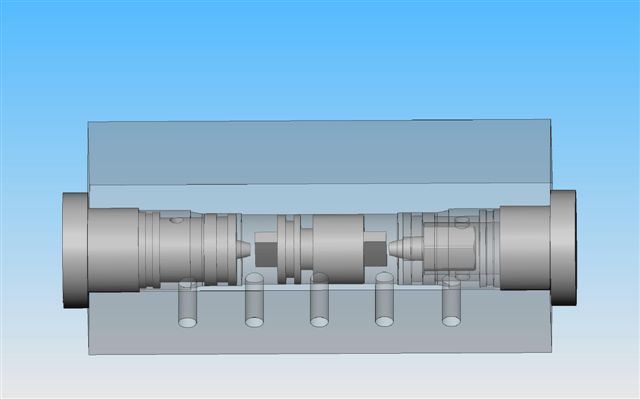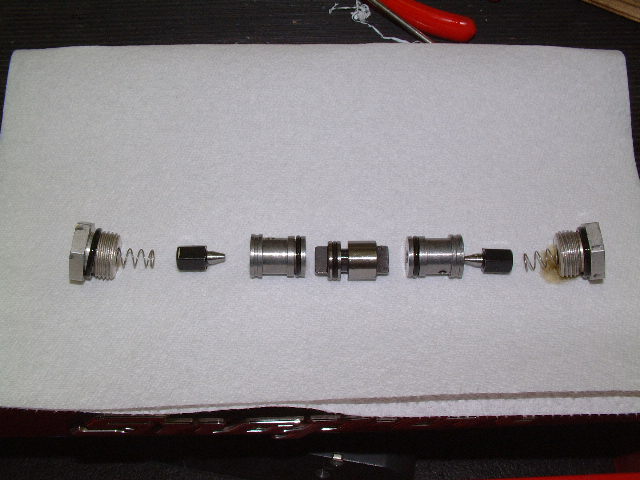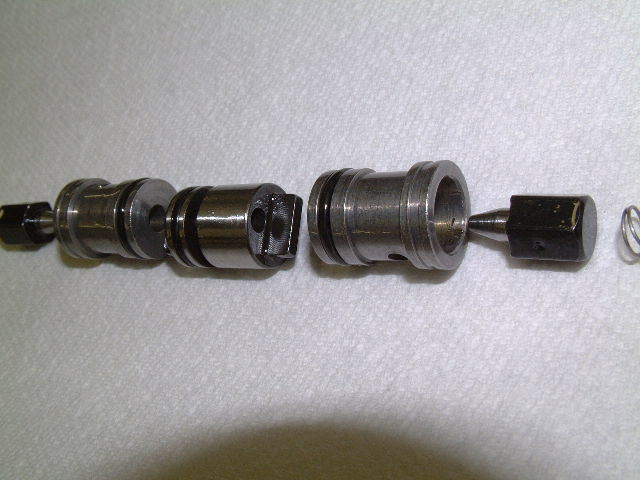|
|
If your hydraulic pump is intermittently running then you have a
leak. Period. The amount of air in the system only affects the leak
rate because air leaks faster than oil. If oil is not leaking out of
the system then you have a port to port leak. This type of a leak can
occur anywhere there is an actuator or valve. Before you start
rebuilding system components it may be a good idea to isolate the leak
by capping the lines and monitoring the pressure decay. A ball valve
with a couple of pressure gages "T"ed to each end installed in the line
will allow you to pressurize the system and then close the valve to see
which side of the valve has the leak.
There are four valves (two on each line) inside the pump where a leak
may develop. There are two Over Pressure Relief (OPR) valves and the
two ends of the cross piloted check valve. The internals of the cross
piloted check valve are pictured below.. This valve uses the pressure
side to pilot the return valve open. If the pump is not running the
system is isolated. Contamination is the most common source of damage
to the valve seats.
Randomly changing hydraulic fluid is NOT recommended. MIL-H-5606 is
qualified for use with Buna-N (rubber), the compound most commonly used
for elastomer O-rings. Many ATFs have additives that are incompatible
with some elastomers, Buna-N among them, causing seals to become
brittle or soft. This is why there are "types" of ATF. As the
legendary Mooney story goes, any fluid, even urine, can be used for
hydraulic fluid, for a while. If you are interested in long term
operation, use only qualified fluids.
Regarding airspeed and ground speed, it makes NO sense to do
performance comparisons using a random frame of reference. Sitting at
my desk I have a ground speed of better than 1,000 Kts. Of course, for
my ground reference I have selected a famous stationary landmark. The
Eagle's descent stage.......at Tranquility Base......on the moon.
Regards
Brent Regan

pump valve.jpg

DSCF3146.JPG

DSCF3147.JPG
|
|